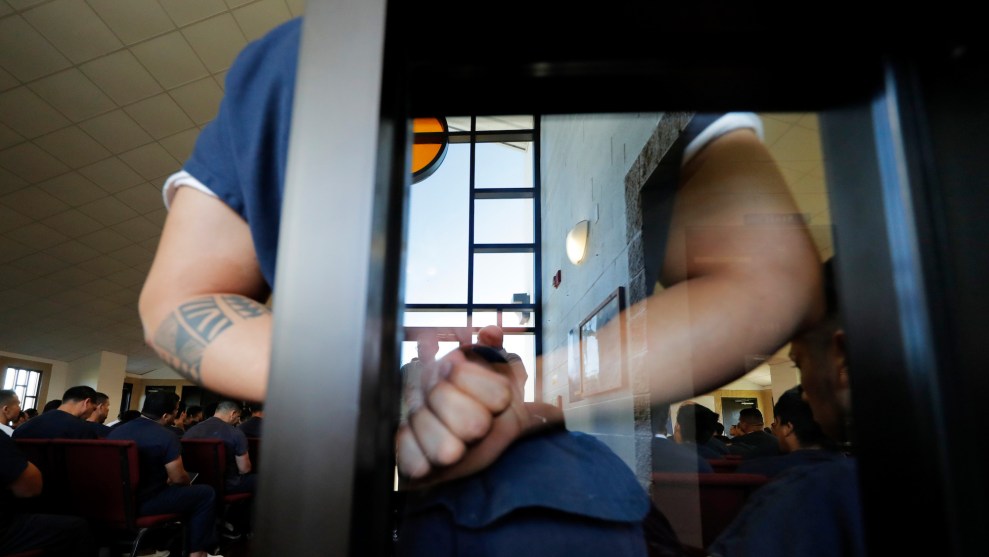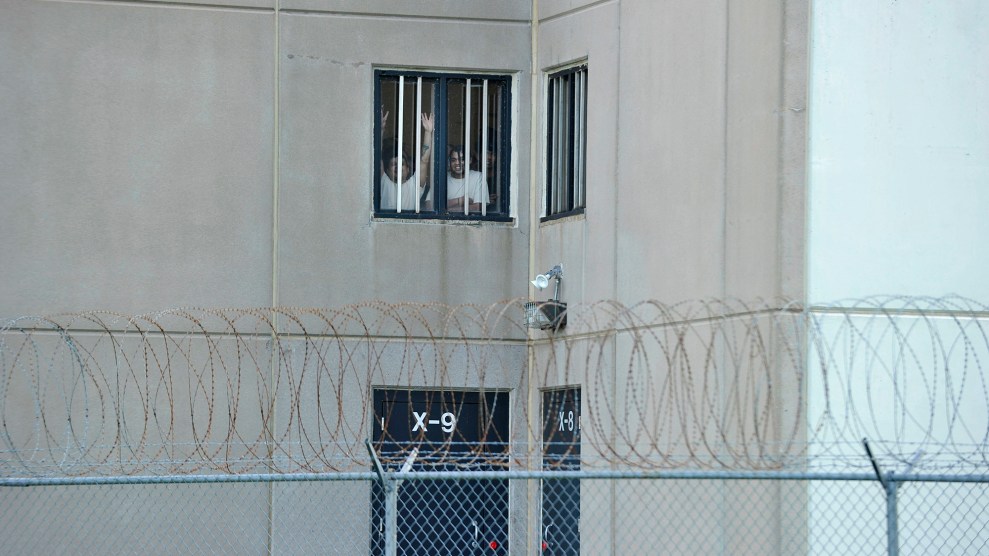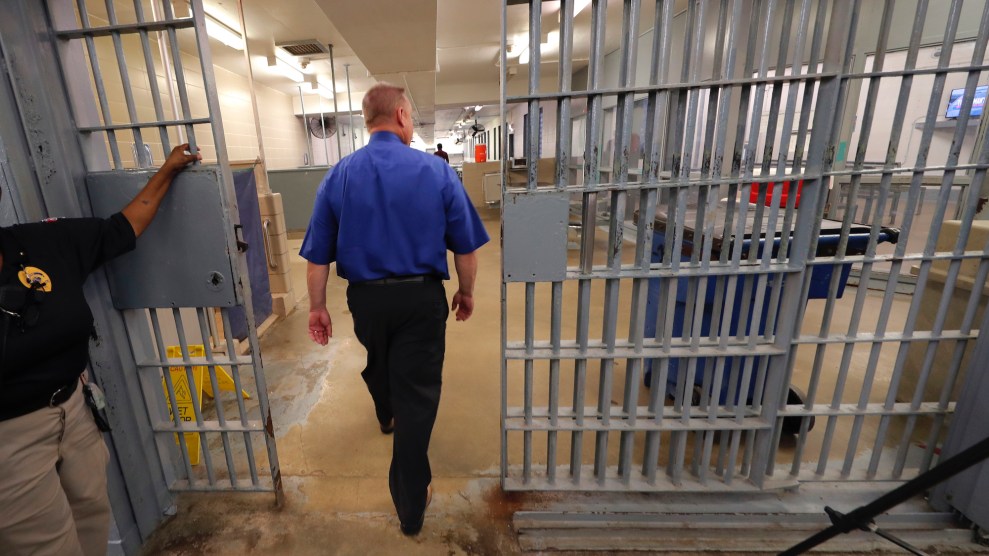
Detainees sit and wait for their turn at the medical clinic at the Winn Correctional Center in Winnfield, La.Gerald Herbert / AP
Earlier today, the Southern Poverty Law Center asked a federal judge to issue an emergency preliminary injunction requiring Immigration and Customs Enforcement to provide protections against the coronavirus outbreak for immigrants being held in their custody. The motion, filed in a US District Court in California, demands that ICE immediately enact a protocol to protect vulnerable people held in detention, or start releasing them.
The request for an emergency injunction is part of a larger lawsuit that the SPLC and other civil rights organizations first brought against ICE in August 2019. It was quickly filed after ICE on Tuesday confirmed the first positive case of COVID-19 in a person being held in ICE detention.
The motion argues that ICE detention centers are essentially hotbeds of rapid transmission for the novel coronavirus. Detainees are often kept in crowded areas and lack access to basic supplies such as hand sanitizer and soap. People with risk factors such as age or underlying health conditions—people who are particularly vulnerable to COVID-19, in other words—reported feeling like “sitting ducks,” according to the SPLC.
“People are talking a lot about how hospitals are going to be strained by the COVID-19 pandemic. The fact is, the ICE medical system is already strained. It’s already broken,” Jared Davidson, an SPLC attorney, told my colleague Noah Lanard.
The motion proposes a short, 24-hour window for ICE officials to put medical safety procedures in place. If they are unable to do that, they should release vulnerable people within 48 hours. “Release is an option,” said Lisa Graybill, deputy legal director of criminal justice reform at the SPLC. “The detention of people is not legally required. ICE has total discretion.”
A number of public health experts and other officials, including the former director of ICE under the Obama administration, have called on the agency to release people from detention to protect them from the pandemic. Up to this point, ICE has announced that it would slow arrests, has given no indication that it would release people currently in custody. Graybill and Davidson say that this refusal is worsening the public health crisis.
“If there were a hospital in our community that routinely provided inadequate care,” Davidson said, “the general public would be quite reasonable in thinking it needed to close. ICE is essentially…also the provider of medical care. What our filing lays bare is that it’s doing a constitutionally inadequate job at protecting people from harm. The COVID-19 pandemic is going to exacerbate that already-broken system.”
Noah Lanard contributed reporting for this story.

















